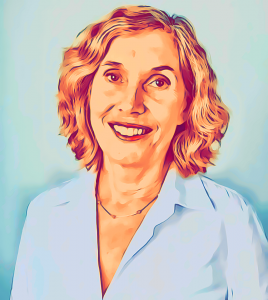201 Letter from Jennie Small
 Dear Future Women Researchers,
Dear Future Women Researchers,
Welcome to the field of tourism studies. I hope you find your position in this field as stimulating and fulfilling as I have. It is many decades since I first engaged in tourism research and my interest has not waned. I found my niche in a field that I loved and have been privileged to work with many wonderful scholars. I cannot speak for all universities, but when asked about the positive aspects of university life, academics in English speaking countries often cite ‘the freedom’. For some this might be freedom to teach and research in areas of interest – in Tourism Studies the opportunities are endless for finding a subject area that stirs your passion as the field is so broad. The freedom to choose where and when to work is also mentioned (at least in my experience, most academics are not restricted to a 9-5 job in the office). This flexibility can certainly be of benefit in managing other non-work duties. Nonetheless, academics can also be said to lack freedom. Our workloads can seem excessive. Our academic duties can easily encroach on weekends, evenings, holidays. I recall striking up a conversation with an English tourist in a food market in Madrid a few years ago when on my way to the Critical Tourism Studies Conference in Majorca (and yes, such a privilege to attend international conferences). It turned out she was a school teacher. We started discussing work and she made the comment that, as a school teacher, ‘you were never good enough’. The same could be said for university academics. There is always something more you could/should be doing. On top of teaching and administrative demands, there is no end to the reading, researching, and writing you could be doing – no end to the publications you could be producing. And, as with any job, there are also the non-work demands of family and friends which come one’s way. I certainly have stumbled along, feeling my way, trying to balance the demands.
I am not sure how qualified I am to give advice but… here goes….
- Find research areas that are meaningful. Hopefully, you will still be immersed long after your research has been published.
- Become informed. Expand your knowledge by exploring other fields of study and disciplines There are no magical boundaries to knowledge.
- Keep up to date with the literature but don’t dismiss the earlier writings. Because a publication is not recent, it does not mean it is out-dated.
- Have an understanding of the history of travel and tourism – how we got to where we are today.
- Travel yourself, experience tourism so you can speak with authority. I have always been amazed at tourism academics who have little interest in being a traveller or tourist themselves.
- Be curious and question – an essential requirement for a good researcher.
- Don’t be afraid to admit what you don’t know.
- Be critical and challenge ideas. Speak up when you disagree with what you read or hear – although not always easy in the early stages of a career.
- Make the world a better place through your tourism research – if only in a small way.
- Try to maintain work-life balance along the way. Life is short. It is a cliché but children do grow up fast. Parents age. Friends may move away. And we can’t get that time back.
- Be kind and generous to yourself. Don’t beat yourself up – perhaps you made that work deadline but not the required cupcakes for the school fete (or vice-versa). Easier said than done, I know. Women’s guilt!.
- Seek out like-minded colleagues who provide support and inspiration and with whom you can be yourself. Friendship and collegiality in the workplace are important. There are many ways that women can feel alienated from the patriarchal culture of the university which values rationality, competition, rankings, and individual success. However, friendship in the workplace (within or between universities) can allow women to feel validated, relaxed, respected, included, and intellectually and emotionally safe*.
- Finally… and overall, enjoy your work, your colleagues, and have fun! Life is short.
I hope the above list is not too overwhelming and exhausting to an Early Career Researcher who is more than likely already exhausted and overwhelmed. My own academic career was one of juggling and trying to find a path through all the conflicting and confronting demands. My time in academia has not been perfect and there are regrets but, overall, I feel fortunate in the opportunities I have had. I always enjoyed going to work. I am now ‘retired’ from my salaried position but still engaged in research and writing. A privilege of academic life is that you can continue your interests but say goodbye to the more tedious parts of the job.
Today, I see a generation of young women as Early Career Researchers who are well informed, talented, and confident. Have faith in yourself and enjoy your tourism academic journey.
With my best wishes for your future,
Jennie Small
University of Technology Sydney
* Small, J., Harris, C., Ateljevic, I. & Wilson, E. (2011). Voices of women: A memory-work reflection on work-life dis/harmony in tourism academe. Journal of Hospitality, Leisure, Sport and Tourism Education, 10(1), 23-36.

